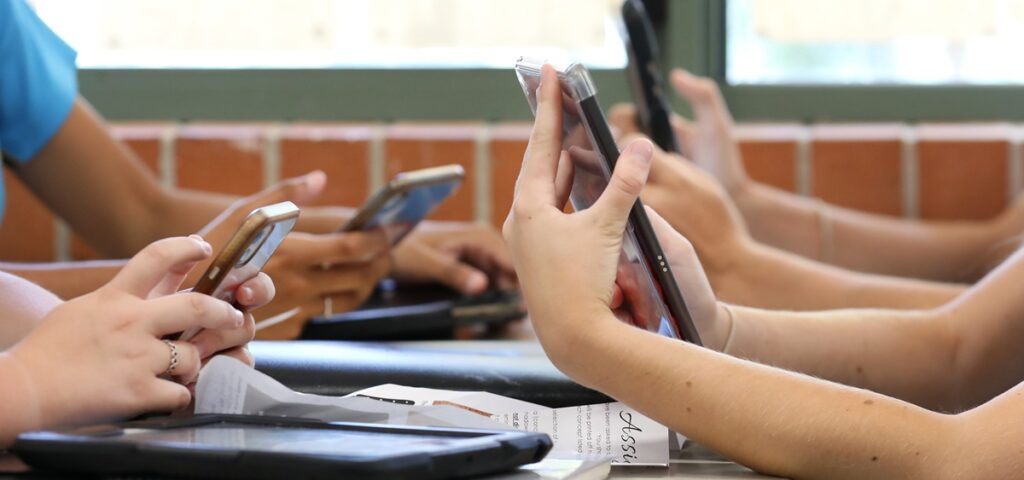Since January 2024, cellphones have been banned during class, but not elsewhere in schools. On May 1st, 2025, the Quebec government announced it would go even further for the 2025–2026 school year, and they did. As of September 18, cellphones and other mobile devices are no longer allowed in classrooms, hallways or the schoolyard.

The ban applies from the time classes start to when they end, according to Quebec’s Education Minister Bernard Drainville. So, that includes class time and breaks, anywhere on school grounds.
New school year, new rules
As of September 18, 2025, students will no longer be allowed to use a cellphone, headphones or any other personal electronic device on school property, whether that be inside or outside the school building. But there are some exceptions:
- Teachers can allow students to use these devices for an educational activity.
- Students can use a device if it’s required by their health or in case of an emergency.
- Students can use a device to meet their accessibility needs, like if they have a physical or learning disability.
This ban applies to both elementary and high schools, whether they’re public or private. Each school will need to decide how to add this to their code of conduct, including the details on how these rules apply and what the consequences will be for breaking them.
For example, in some schools, students need to put their cellphone in a locked pouch for the day. In others, students are allowed to keep their phone in their locker, as long as they don’t use it.
Why cellphones are being banned
Whether we’re talking about government regulation or a parent’s decision, a child’s best interests must always come first when a situation affects them. This was an important factor in the decision to ban cellphones and other personal electronic devices in schools.
The Select Committee on the Impacts of Screens and Social Media on Young People’s Health and Development was the one to recommend this new rule after studying a variety of issues around children and teens’ exposure to digital technology. The Select Committee consulted experts, researchers and youth before making their recommendations. Several important findings came out of this consultation:
- Students acknowledged that cellphones are a distraction and sometimes take away from their ability to concentrate in class. Most youth who go to a school where cellphones were already banned said they wouldn’t want to go back.
- Scientific studies confirm the same thing: using a digital device in class is linked to decreased learning. Even just having a turned-off cellphone out on the desk can affect working memory.
- Banning cellphones everywhere in schools reduces total screen time for youth and could encourage them to be physically active, read or spend time outside.
- Without their cellphones in hand, youth may interact with each other more. This could help them learn how to communicate, resolve conflicts, and support each other.
- Finally, the Montreal police (SPVM) brought up that many cases of cyberbullying, threats and non-consensual sharing of intimate images start at school, during the school day.
|
Politeness now required? The Regulation respecting the rules of conduct in elementary and secondary schools banning electronic devices in class also includes rules intended to encourage respect and civility in schools. These rules, which will take effect on January 1st, 2026, require, for example, that students address school staff with formal titles and respect their fellow students’ reputation and privacy. |





